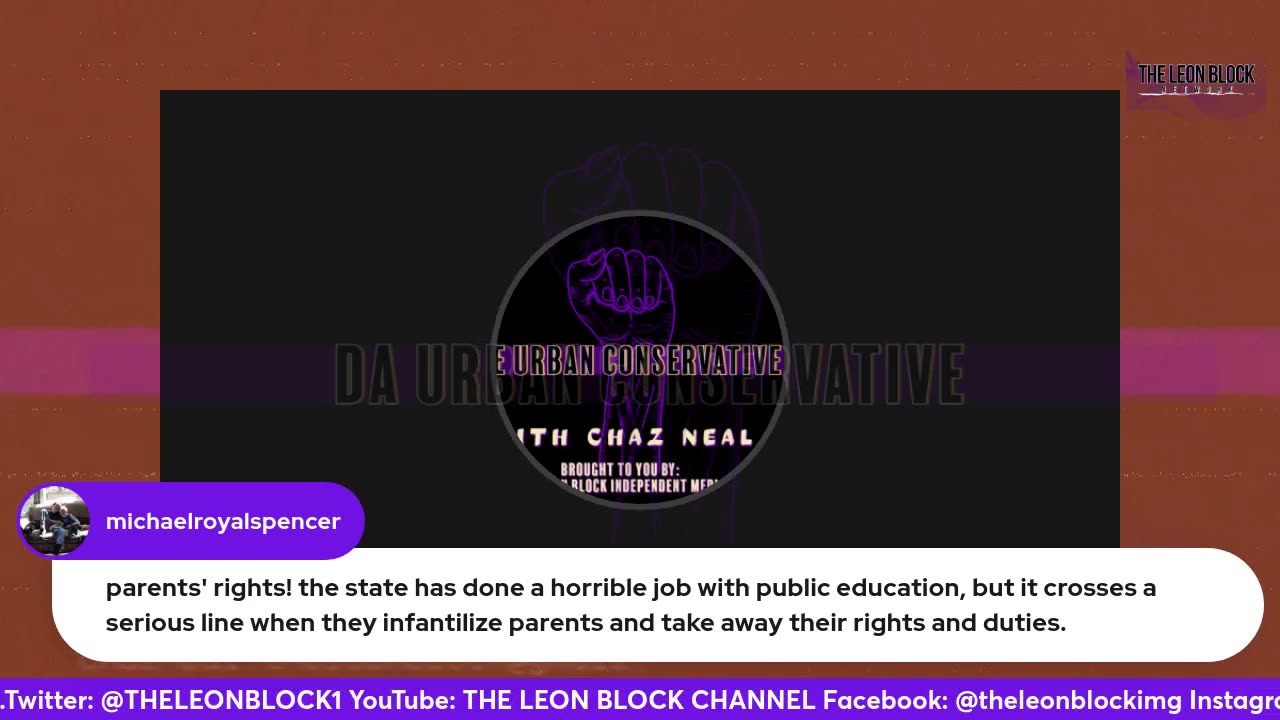Premium Only Content

DAC- Navigating the Crossroads: Civil Rights, Politics, and the Forgotten Link
Welcome to a thought-provoking episode of "Da Urban Conservative," where we delve into a fascinating historical juncture, unpacking the intricate dynamics of civil rights, politics, and an often overlooked connection between race and gender.
In the backdrop of 1964, a pivotal era for civil rights legislation aimed at addressing the systemic challenges faced by African Americans, a subtle but cunning political maneuver unfolded. Picture this: Democratic representative Howard Smith of Virginia, strategically attempting to disrupt the passage of Title VII, a crucial bill designed to combat racial discrimination. His tactic? Introducing an unexpected twist – an amendment addressing sex discrimination.
This episode aims to unravel the motives behind such a calculated move and explore the complex resistance that women's rights encountered during this transformative period. Unlike the more straightforward but threatening opposition against black nondiscrimination rights, the struggle for women's rights manifested as a blend of complexity and humor.
The humor surrounding women's rights during this time wasn't light-hearted; it was rooted in disparaging stereotypes and the folklore surrounding marriage. This unique resistance, distinct from the challenges faced by other minority groups, adds layers to the intricate tapestry of civil rights history.
As we journey through this historical landscape, it becomes evident that the cynical linkage of race and sex discrimination as a legislative tactic was not unprecedented. Instances of similar attempts to derail civil rights bills by introducing seemingly incongruous amendments were part of a standard practice. Howard Smith's 1945 endeavor to derail a Fair Employment Practices bill and Dwight Rogers' successful but short-lived addition of "sex" to a similar bill in 1950 showcase the historical context in which these maneuvers took place.
However, not all linkages were driven by cynicism. In 1962, James Roosevelt proposed an equal employment opportunity bill encompassing both race and sex discrimination. Surprisingly, this well-intentioned effort faced opposition from significant organizations like the NAACP and government departments.
Why does this historical twist matter? Understanding this forgotten link is crucial for unraveling the complexities of the civil rights movement and acknowledging the multifaceted challenges women faced in securing their rights during this transformative time.
Join us on "Da Urban Conservative" as we explore untold stories that shape our understanding of history. In each episode, we peel back layers of resilience, challenge, and the relentless pursuit of justice, urging you to stay informed, stay engaged, and remember that history is a tapestry woven with threads of perseverance and change.
-
 58:14
58:14
theDaily302
1 day agoThe Daily 302- Tim Ballard
79.8K14 -
 13:22
13:22
Stephen Gardner
18 hours ago🔥You'll NEVER Believe what Trump wants NOW!!
127K353 -
 54:56
54:56
Digital Social Hour
2 days ago $13.96 earnedDOGE, Deep State, Drones & Charlie Kirk | Donald Trump Jr.
73.5K8 -
 DVR
DVR
The Trish Regan Show
19 hours agoTrump‘s FCC Targets Disney CEO Bob Iger Over ABC News Alleged Misconduct
76.6K45 -
 1:48:19
1:48:19
The Quartering
20 hours agoElon Calls White People Dumb, Vivek Calls American's Lazy & Why Modern Christmas Movies Suck!
156K118 -
 2:08:42
2:08:42
The Dilley Show
21 hours ago $38.31 earnedH1B Visa Debate, Culture and More! w/Author Brenden Dilley 12/26/2024
132K44 -
 4:55:59
4:55:59
LumpyPotatoX2
23 hours agoThirsty Thursday on BOX Day - #RumbleGaming
117K9 -
 1:04:52
1:04:52
Geeks + Gamers
22 hours agoDisney RATIO'D on Christmas Day | Mufasa Embarrassed By Sonic 3
85.7K13 -
 8:27:46
8:27:46
Sm0k3m
1 day agoRumblers Assemble
54.6K4 -
 10:37
10:37
Russell Brand
2 days agoHow is this even allowed?
214K999